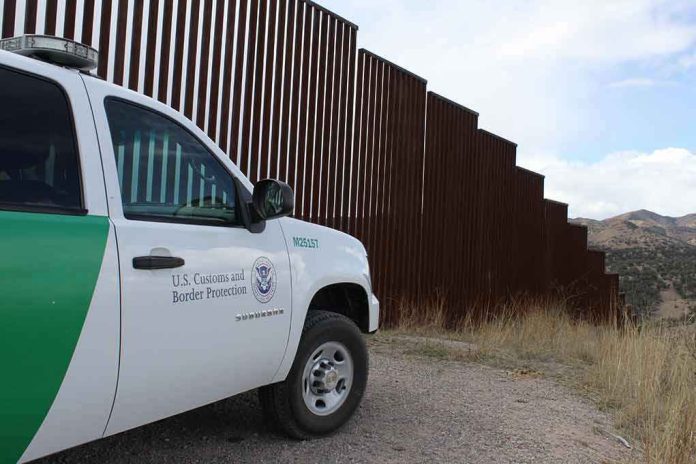
Mexican officials dismiss the possibility of U.S. military action against cartels, but President Trump’s administration is signaling a new era of decisive border security that stands in stark contrast to past failed policies.
Story Snapshot
- Mexican President Sheinbaum downplays U.S. military intervention on Mexican soil amid Trump’s crackdown on cartels.
- Trump administration designates major Latin American cartels as terrorist groups, increasing pressure for cross-border cooperation.
- New executive orders focus on securing the border, halting illegal immigration, and restoring law and order after years of leniency.
- Conservative Americans demand real action as the administration counters globalist inaction and prioritizes national security.
Mexican Leaders Push Back on U.S. Intervention Reports
Mexican President Claudia Sheinbaum, addressing recent media reports, asserted that the U.S. “won’t” conduct military operations against drug cartels on Mexican soil. This statement follows heightened speculation after President Trump’s administration made clear its intent to treat cartel violence as a direct threat to national security. Sheinbaum’s comments appear designed to reassure her domestic audience, but many Americans remember years of cartel-driven chaos enabled by weak cross-border enforcement and past U.S. administrations’ hesitancy to act decisively.
President Trump’s administration has moved swiftly in 2025 to reverse course on border security, designating eight major Latin American cartels as terrorist organizations. This move marks a dramatic departure from the previous administration’s globalist approach, which was often criticized for prioritizing diplomatic niceties over the safety of American citizens. By officially labeling cartels as terrorist groups, the administration is laying the groundwork for more robust law enforcement and intelligence operations, increasing leverage to demand genuine cooperation from Mexico.
Trump’s Border Security Actions and Executive Orders
Actions taken since January include executive orders closing the border, revamping asylum rules, and ending taxpayer subsidies for illegal aliens. The administration reinstated the “Remain in Mexico” policy and built upon previous efforts to finish the border wall, signaling to both traffickers and U.S. citizens that the era of catch-and-release and open borders is over. These changes come in response to years of rising frustration among Americans who bore the brunt of crime, drug trafficking, and fiscal strain caused by unchecked illegal immigration.
President Trump’s policies are underpinned by a belief in American sovereignty, constitutional rights, and the protection of communities. In contrast to the previous administration’s perceived tolerance of border chaos and progressive overreach, the current approach prioritizes safety, law, and order. The Supreme Court has also supported these efforts, greenlighting stronger deportation measures and limiting judicial activism that hindered common-sense immigration enforcement.
Conservative Values Reshaping U.S.-Mexico Cooperation
The Trump administration’s hardline actions have sent a clear message: the U.S. will no longer tolerate cartel violence spilling over the border or policies that erode constitutional protections. By restoring law and order and protecting American families, the administration is answering years of conservative calls for action. While Mexican leaders may prefer to downplay the likelihood of joint military operations, the United States is now firmly in control of its own security agenda, unwilling to outsource safety to foreign governments that have failed to get their own house in order.
The administration’s decisive steps contrast sharply with the globalist, “woke” policies that many Americans felt undermined core values and public safety. For voters frustrated by years of government overreach, inflation, and erosion of family and Second Amendment rights, the new approach represents a long-awaited return to common sense and respect for the rule of law. The administration’s stance signals that American interests come first, and that constitutional protections will not be sacrificed in the name of appeasement or international “cooperation” that yields no real results.
While Mexican officials publicly dismiss the idea of U.S. intervention, the Trump administration’s record of bold action leaves little doubt: America’s days of passive border policy are over. The nation is reclaiming its authority, holding foreign actors accountable, and prioritizing the security and well-being of its citizens above all else.





